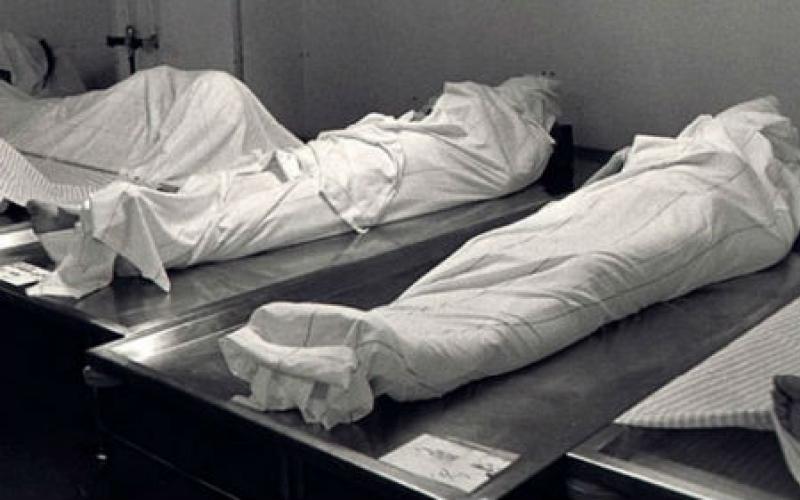For maximum effectiveness of training, an athlete needs a good rest, during which the body recovers after exertion. Recovery rate depends on a large number factors - on the intensity and amount of work performed, on the health of the athlete, on the presence of the necessary substances in the body, on the degree of fitness of the body.
Recovery processes are influenced by many things, but in the range of products sports nutrition there are often distinguished ones that have the greatest impact on the rate of recovery. These include:
- amino acids- first of all, as well as beta-alanine;
- vitamins and minerals, especially antioxidants - vitamin C and vitamin E;
- cortisol blockers, in particular, the same vitamin C, and.
In addition to the above, in order to accelerate recovery, various adaptogens and pharmacological preparations, including hormonal ones, for example, various testosterone boosters, can also be used.
Recovery tools
Amino acids - the first most important element in the processes of recovery of the body after heavy loads. An additional intake can significantly reduce the catabolic destruction of muscles, fill them with energy and nutrients, accelerating the construction of new muscle tissue. participates in protein synthesis, nitrogen metabolism and ammonia excretion, inhibits the secretion of cortisol, stimulates the production of hormones and enzymes, strengthens the immune system, so it is also important for recovery. beta alanine prevents the accumulation of harmful acids in the muscles, reduces fatigue, largely eliminates muscle pain after training, promotes the regeneration of muscle fibers.
It can be taken both individually and as part of special complexes, and even a simple intake can satisfy the body's need for amino acids.
Vitamins and minerals – make the recovery process easier and faster. First of all, antioxidants such as vitamins C and E, protecting body proteins from destruction, increasing immunity and accelerating regeneration processes. Of great importance are B vitamins- thiamine (B1), which improves the supply of oxygen to tissues, accelerates the metabolism of fats and carbohydrates, increases heat production, protects the heart, nervous and digestive systems; riboflavin (B2), which regulates the production of energy from carbohydrates and fats and is involved in protein synthesis; pantothenic acid (B5), which is involved in the production of hormones, has anti-stress and anabolic effects; pyridoxine (B6) and cyanocobalamin (B12), necessary for the normal absorption of proteins and carbohydrates; folic acid(B9), necessary for hematopoiesis and protein synthesis.
Minerals are necessary for building almost all tissues of the body: calcium and phosphorus - bone, chromium - for the absorption of amino acids by cells, zinc is involved in the production of testosterone, iron in the synthesis of hemoglobin, which supplies tissues with oxygen, sodium and potassium provide water and electrolyte balance, etc. Therefore, during active training or other physical exertion, it is necessary to take a vitamin-mineral complex, in which the amount of vitamins and mineral components necessary for a person is balanced.
Carnitine - a vitamin-like substance responsible for the transport of fatty acids, as well as performing a number of other important functions, for example, cardioprotective. Therefore, an additional intake that protects the heart and promotes more active processing of fats helps to speed up the recovery processes.
Cortisol blockers - these are various substances that in one way or another interfere with the action of cortisol - a stress hormone responsible for the destruction of proteins, the accumulation of fat, increased appetite, increased blood glucose concentration, etc. These include both the substances already considered (amino acids, especially BCAA, as well as vitamin C), and some others - fatty acids of the group. To suppress the secretion of cortisol or reduce its activity, a number of pharmacological agents are also used (clenbuterol, agmatine, anabolic steroids, etc.). Cortisol blockers, like some other groups of substances (for example, testosterone boosters), contribute to the restoration of the body not directly, but indirectly, stimulating the secretion of hormones that accelerate the growth of muscle tissue - testosterone, insulin, growth hormone, etc., as well as blocking the activity of hormones and enzymes that contribute to the destruction of muscle tissue. On the one hand, this can be useful and often helps speed up recovery somewhat, but on the other hand, it must be remembered that, for example, cortisol in the body is responsible for the accumulation and release of nutrients that the body needs during training stress. Therefore, the artificial suppression of their action also leads to some disruption in the normal operation of metabolic processes.
Key Recovery Factors
Since recovery is a natural process for the body to regenerate damaged tissues and restore the full functionality of all organs and systems, the athlete's task is only to help his body by providing it with all the necessary building materials and providing the most favorable conditions. Within this task, 4 key points can be distinguished:
- regular drinking, restoring water balance;
- a complete balanced diet;
- sufficient passive rest (sleep and relaxation);
- moderate active rest.

What and how to drink? Since the nutrition and lifestyle of an athlete have significant differences from the diet and lifestyle of ordinary people, it is impossible to rely only on the subjective feeling of thirst. First of all, it is necessary to determine a sufficient volume of fluid necessary to maintain the body's water balance and timely restore moisture lost during prolonged training. Many athletes use a large number protein foods, so an increased amount of water is also needed to remove harmful products of its processing. All this means that it is necessary to control the amount and regularity of the fluid you drink. For example, you can pre-measure the amount of water you need for the day by pouring it into a bottle, and during the day prepare all drinks from this supply.
It is good to drink both just water and drinks prepared with the addition of the necessary well-soluble substances (mineral salts, water-soluble vitamins, a certain amount of simple carbohydrates). It's better to give up altogether. alcoholic beverages, as well as from various sodas, containing excess sugar and synthetic dyes, flavors, stabilizers, etc.
 What and how to eat? The main thing here is the quantity, composition and frequency of food consumption. The athlete's diet must be strictly adjusted, taking into account the components necessary for him. It is necessary to pay attention not only to the calorie content of food and the content of proteins-fats-carbohydrates, but also to the type of these substances. For example, it is known that vegetable proteins are absorbed by the body more easily, but contain fewer amino acids necessary for humans than animals.
What and how to eat? The main thing here is the quantity, composition and frequency of food consumption. The athlete's diet must be strictly adjusted, taking into account the components necessary for him. It is necessary to pay attention not only to the calorie content of food and the content of proteins-fats-carbohydrates, but also to the type of these substances. For example, it is known that vegetable proteins are absorbed by the body more easily, but contain fewer amino acids necessary for humans than animals.
For recovery after vigorous training, regular well-balanced nutrition plays a key role, because at this very moment the body requires many substances in larger quantities than usual - proteins, unsaturated fats, carbohydrates, vitamins, minerals, etc.
 How much and how to sleep? This issue is also extremely important for a normal and speedy recovery. So many healthy people just need a good night's sleep after heavy loads - and they have already recovered by three-quarters. In a dream, the body works at full strength to regenerate damaged tissues, replenish depleted reserves of nutrients and nervous energy, without being distracted by other tasks. In order for sleep to provide quality recovery, it,
How much and how to sleep? This issue is also extremely important for a normal and speedy recovery. So many healthy people just need a good night's sleep after heavy loads - and they have already recovered by three-quarters. In a dream, the body works at full strength to regenerate damaged tissues, replenish depleted reserves of nutrients and nervous energy, without being distracted by other tasks. In order for sleep to provide quality recovery, it,
- First of all, should be enough lengthy(at least 8 hours, and sometimes more),
- Secondly, timely(do not overwork)
- third, quality and calm(the bed should ensure the correct position of the joints and spine, clothing - the free functioning of the circulatory system, the environment - deep peace).
How to rest? Rest should be not only passive, but also active. After a long rest, allowing the body to recuperate, suppress catabolism and build new muscle tissue; required physical activity improves blood circulation, supply of tissues with oxygen and nutrients. But this should, of course, not be a new workout, but a different pastime that involves other muscle groups and provides new experiences that will help the nervous system recover by switching to other activities.
Recovery nervous system should also be given great attention because it does not recover as easily and quickly as muscles.
Was this article helpful? Not really
Athletes' ability to perform at their best can be limited by a number of factors. Not the last place on this list is occupied by such an indicator as the speed with which muscles recover after heavy physical exertion during training or competition.
Many factors influence the duration of the recovery process. But perhaps the most important thing here is nutrition. And it is very strange that this factor is most often neglected or not thought about at all. Over the past decade, many of the world's leading laboratories have conducted extensive studies that clearly illustrate how nutrition strongly affects the recovery process and the results of athletes.
Athletes who use the results of these studies in their daily training process have undeniable advantage before the rest.
Recovery window
During training and competition, there is a significant splitting of glycogen stores in the muscles and deformation of muscle tissue cells, which leads to fatigue and pain in the muscles. This makes it difficult for them to function. Among other factors that affect the body's ability to withstand significant physical activity over several days, the most significant is how quickly the body can restore its glycogen stores and muscle cells after hard work.
Today it is well established that the key to recovery is the consumption of carbohydrates and proteins immediately after training. Studies have shown that it is optimal to take high glycemic carbohydrates and quality proteins (possibly in the form of liquid food additives) in a ratio of 4:1. The total amount of carbohydrates and proteins taken by an athlete immediately after training should be 10-20 percent of their daily intake.
Accurate determination of the time of intake is a very important aspect, since muscle tissue cells have increased sensitivity to insulin immediately after training. Insulin is a hormone responsible for transporting glucose and amino acids into muscle cells and stimulating the synthesis of glycogen and muscle protein. It also significantly reduces the process of muscle protein breakdown. When high glycemic carbohydrates and proteins are consumed immediately after a training session, recovery processes are much more intense.
However, this "window" of opportunity for recovery remains "open" for only 45 minutes after training. This is partly due to the rapid decline in plasma membrane glucose levels that increase during exercise. If you procrastinate and don't take your recovery nutrition in a timely manner, your muscles won't be able to take up insulin. Moreover, they will become insulin-repellent, and the process of their recovery will be seriously hampered.
At Vanderbilt University, scientists investigated the effect of carbohydrate-protein supplementation on protein synthesis after an hour of exercise. The athletes involved in the study were given the supplement in one case immediately after training, and in the other three hours later. In the first case, the process of protein synthesis was three times faster. Other studies have shown the same pattern for muscle glycogen replenishment.
A number of other studies have addressed the issue of the effect of proper restorative nutrition on the performance of athletes during consecutive training. For example, in one case, athletes were given a regular sports drink after a strenuous workout, and in another, they were given a carbohydrate-protein supplement. Both were given an hour's rest, after which they conducted another training session.
The performance of the group of athletes who took a carbohydrate-protein supplement during the second training task was 20 percent higher. The results of these studies clearly show how an athlete should eat when he trains more than once a day.
Maintaining strength and health
When an athlete takes proper recovery nutrition on a daily basis, the long-term benefits of such a diet begin to appear. First of all, it helps to build up faster muscle mass and strength indicators, to avoid injury.
The first of these benefits was demonstrated in a study published in the Journal of Physiology. Control groups participating in a 12-week strength training program were given a carbohydrate-protein supplement in one case immediately after training, and in the other after two hours. In the first group, the growth of strength indicators was 15 percent, the growth of muscle mass was 8 percent. In the second group, no increase in indicators was recorded.
Until recently, no studies have been conducted on the long-term health effects of taking proper restorative nutrition (carbohydrate-protein supplements) immediately after exercise. But the latest research state university Yowy traced this effect. Very interesting results have been obtained.
Six platoons of Marines were divided into three control groups during a 54-day basic training program. Each day after the training session, one group was given a non-caloric meal, the second was given a carbohydrate and fat supplement, and the third was given a carbohydrate, protein, and some fat supplement. The researchers found that in the "carbohydrate-protein" group, muscle and joint injuries were reduced by 37 percent. And this was achieved due to faster muscle recovery after training.
New interesting research showed how consuming carbohydrates and proteins directly during a training session can help reduce the risk of injury and improve performance in consecutive workouts. This means that the use of restorative nutrition should begin before the restorative process itself.
The following study was conducted at James Madison University. A group of 15 male cyclists were asked to complete two sessions on bicycle ergometers "to exhaustion" in two days. One was given a regular sports drink during the first workout and immediately after it, the other was given a carbohydrate-protein supplement in a 4:1 ratio. During the second training session, no supplements or drinks were given. Both groups had blood tests for creatine phosphokinase (a bioindicator of muscle injury) before the second workout.
The group that received the carbohydrate-protein supplement showed an average of 29% greater performance in the first and 40% in the second workout. In addition, this group's creatine phosphokinase content was 83 percent lower, indicating a much lower risk of muscle injury.
The question remained open whether a carbohydrate-protein supplement would be so effective in the case of anaerobic exercise and work with iron. There are no completed and formalized studies on this issue yet. But the latest data from an ongoing study at the University of Texas says, "Yes, it will!" In resistance exercise, a carbohydrate-protein supplement significantly reduces the risk of muscle injury. (Personal contact, August 13, 2004).
To date, the mechanism for reducing the risk of muscle injury by taking protein supplements directly during a training session has not been clearly established. However, there are two versions that more or less plausibly explain the essence of this effect.
According to the first, the protein taken during training can be used mainly to compensate for energy costs, thereby reducing the rate of muscle protein breakdown. According to the second version, the protein taken during training increases the levels of amino acids and insulin in the blood. And elevated levels of amino acids and insulin in the blood reduce the rate of muscle protein breakdown. This is a proven fact.
At the end of the topic
Concluding this topic, we can only say one thing: proper recovery nutrition can revolutionize training systems. Athletes who are truly serious about improving their performance should take a carbohydrate-protein supplement in a 4:1 ratio (preferably in liquid form or with liquid) immediately after training or competition.
It is also recommended to take such liquid supplements directly during the training session. The payoff is reduced risk of injury, faster glycogen replenishment, improved performance in consecutive workouts, and increased strength.
about the author
Paul Goldberg, strength coach and nutritionist for the NHL's Colorado Avalanche. He has been in this position since 1999. He received all his degrees from the College of Colorado and the University of Colorado. Prior to joining the NHL, he was a strength coach at the Universities of Colorado and Michigan.
Only after the end of the workout do muscles begin to grow. And in order to form an ideal embossed body, it is important to learn how to properly rest. But what is rest if not eating and not taking the right drugs? Today we will talk about what means to turn to in order for recovery to be as effective as possible for the muscles.
Recovery phases
Before we talk about the most effective drugs, let's look at the main stages of muscle recovery through which both experienced and novice athletes go through. Doctors distinguish:
- The fast recovery phase, which lasts 30 minutes immediately after the workout. The body replenishes the supply of ATP, glycogen, creatine phosphate. It is at this moment that stress hormones are secreted, the work of the cardiovascular system normalizes, insulin and steroids enter the bloodstream.
- slow recovery phase. The synthesis of proteins, amino acids, enzymes is activated, the water-electrolyte balance is normalized. The digestive system actively absorbs nutrients, damaged cells line up.
- Supercompensation occurs in 2-3 days and lasts up to 5 days. And it is in this phase that a new workout should be assigned.
- Delayed recovery is a return to pre-workout levels. Occurs in the absence of reloading.
How and when to take recovery drugs?
Experienced athletes and nutritionists advise helping muscles recover immediately after a workout. Entering the locker room, it is advisable to take drugs such as:
- BCAA(amino acids with branched side chains). The class consists of three amino acids - leucine, isoleucine and valine. These substances will help suppress catabolism and enhance the secretion of anabolic hormones. The recommended dose is 3-5 g. BCAAs also help repair damaged tissue, improve future athletic performance and reduce muscle pain.
- Creatine- an organic acid found in meat. Only 3 g of the substance will make up for the deficiency of the energy substrate creatine phosphate. As a rule, preparations with creatine are taken before going to the gym. However, after training, creatine is absorbed to the maximum. Supplements can support healthy muscles, produce more energy, improve protein synthesis, and accelerate the growth of new muscles.
- Water. After training, it is important to restore the water and electrolyte balance of the body. It is better to choose table mineral water.
In the slow recovery phase after training, that is, 20-30 minutes after training, for maximum effect, experts advise taking drugs containing:
- Whey proteins are the main source of amino acids and a stimulant of the secretion of anabolic hormones. It is better to take proteins 30 minutes after training in the amount of 30 g. Preparations with this substance will also save time on protein preparation, reduce muscle soreness, and stimulate their growth. Remember, if you are not taking amino acids, it is important to drink protein as soon as possible after your workout. By the way, it is whey protein that enters the bloodstream 15 minutes after consumption.
- Carbohydrates of average complexity are best taken 30-40 minutes after training. Athletes who are prone to overweight it is better not to consume more than 30 g of carbohydrates. However, these substances are important, as they improve the recovery process, increase muscle hydration.
It is also important to continue rehydrating the body with mineral water.
Additional recovery methods
In addition to preparations for quick recovery after training, deep massage is recommended. Such manipulations tone the muscles, stimulate blood circulation and eliminate toxins.
The key step in rehabilitation is proper nutrition. The ratio recommended by nutritionists is as follows:
- 25-30% proteins;
- 55-60% carbohydrates;
- 15-20% fat.
In the absence of a balanced diet, even the most effective post-workout muscle recovery drugs will not work, and all the efforts in the gym will be in vain.
Sleep is an important link in the chain. People involved in sports need at least 8 hours a day to restore normal muscle function. A key component of rehabilitation is the hormonal background. Do not exhaust yourself with physical exercises if you are on the verge of a breakdown.
Various sports ointments, creams and gels also improve blood circulation, increase the speed of muscle recovery and increase skin elasticity.
Where to buy drugs for recovery?
We hope you find our recommendations for post-workout recovery helpful. And you can buy high-quality preparations for muscle recovery after training in the online store of sports nutrition "OlympicBody". We guarantee affordable prices, original products and attentive attitude. Order sports nutrition online or visit us!
Have a good training!
2014-07-23 // Konstantin Belyaev
Rest and recovery is a necessary and important component of any training process, whether it's running, cycling, bodybuilding or chess. The actions or inactions you take between workouts have a huge impact on how you perform and how you feel. Proper recovery allows you to train more, more often and more efficiently, while the wrong one throws you back and harms your health.

Unfortunately, most people do not pay enough attention to muscle recovery after a workout. This article will help to pay attention to the most important elements of recovery of the body after physical exertion.
Why recovery after exercise is so important
Recovery after training mainly affects the "repair" of torn muscles and tissues during physical activity, as well as increasing the strength and endurance of the whole organism. Recovery is especially important after hard training in gym or intense outdoor workouts.
In other words, in training we tortured our body and muscles, and now we must help bring it back to normal.
Muscle recovery time after training
Depending on the intensity of exercise, muscles take 24 to 48 hours to recover, and exercising too early leads to tissue breakdown instead of building.
Supercompensation

In this article, I will not touch on the topic of supercompensation strongly - I will leave it for a separate article. Here, I’ll just say that the idea (someone calls this idea a myth) of supercompensation is that after a workout there is a certain period of time when you need to start the next workout for maximum efficiency and increased athletic performance. For each person, this specific period of time is different, so everyone should investigate this issue on their own. Subscribe to blog updates so you don't miss this article
There are as many means of recovery as there are many athletes on the planet, but I will give the most common and recommended means of restoring the body after physical exertion.
Restoration of fluid in the body. You lose a lot of fluid during exercise, and ideally, you should replenish it during training, but replenishing after exercise is the easiest way to start recovery processes in the body. Water accompanies all metabolic functions and the transport of nutrients in the body, so it is very important that there is enough water in the body. Restoration of fluid is especially important in endurance sports, in which a huge amount of water is excreted through sweat for several hours.
Eat properly. In the process of exercise, energy reserves are depleted, so it is necessary to replenish these reserves so that the body can repair damaged muscles and tissues, become stronger and be ready for the next test. This is very important for people who play endurance sports, as well as for those who seek to increase muscle mass. A few important tips for this item:
- follow your daily intake, and.
- shortly before going to bed, eat some light protein food (for example, cottage cheese or protein cocktail) - this will add a building material that will be used at night
- protein should be present in every breakfast - this will provide the body with the necessary ingredients to start/continue recovery from the very beginning of the day.
- 30-60 minutes before training, a light meal with proteins and carbohydrates (protein shake)
- within 30-60 minutes after exercise, a copious amount of protein and carbohydrates to replenish depleted energy reserves.
Stretching. After each workout, do a set of stretches. It's simple and fast way help the muscles start recovery (I will write a separate article and video about stretching - subscribe not to miss)
Passive recovery and rest. Time one out better ways recover (or heal) from almost all stresses and illnesses. Our body has an amazing ability to heal if you give it time. Rest after heavy loads allows recovery processes to occur naturally. This is the easiest, but not the only way you should recover after a workout. Of course, you can sometimes use this easy method.
Active recovery. Light, gentle movement and exercise improves circulation, which helps transport nutrients and remove waste from the body. It helps muscle recovery and active energy replenishment. Active recovery is performed with light running, gentle cycling, swimming in
Massage. Massage is a pleasant procedure that relieves muscle tension, improves circulation and allows you to completely relax. To avoid high costs for this process, it is possible to massage the legs yourself, and leave the rest of the body to the wife or husband
Cold recovery. AT recent times it becomes very popular to carry out recovery processes with the help of cold: cold baths, ice massage, contrast water procedures. All this allows you to recover faster, reduce muscle fatigue and prevent injury. In theory, repeatedly contracting and expanding, blood vessels help to remove (or wash off) processed products in tissues.
- within 24 hours after training, completely immerse yourself in a cold bath (10-12 degrees Celsius) or a body of water with this temperature for 8-10 minutes
- a contrast shower should be taken every morning and after training, finishing with cold water
Good dream. While you sleep, amazing things happen in your body. Good sleep is important for anyone who exercises regularly. During sleep, the body produces growth hormone, which is responsible for muscle growth and repair.
Avoid overtraining. In pursuit of results and big goals, we often create ambitious training programs and strive to follow them without deviating a single step. For our willpower, this may be good, but for the body it often ends in overtraining. Overtraining is a state of chronic loss of energy, when none of the recovery methods help.
The most important thing is to listen to your body and the body, which always tells us what it can and cannot do. It is better to skip a workout or do it in a more gentle mode (slower and / or shorter) than to deal with the consequences of overtraining for several weeks.
Meditation. Adding mental practices to your training process can be a great support. By practicing mental rehearsal or following a mindfulness program, it becomes possible to improve your calmness, clear attitude to processes, reduce anxiety and fussiness.
The famous climber Uli Steck, who broke several records with his speed climbs, devotes almost as much time to autogenic training as to physical training.
Alcohol is the enemy of recovery. If you are an adherent of the theory of cultural drinking, then know that studies have shown that any amount of ethyl alcohol contained in alcoholic beverages interferes with the recovery process. I'm not saying that you should completely ban alcohol consumption (we live in free time), but if you set yourself the goal of recovering faster, then you will have to cut alcohol out of your nutrition plan.
Listen to your body for fast post-workout recovery
Again, as this is the most important thing you should remember from this article - listen to your body. If you feel tired, sick, or notice a deterioration in your results, you should reduce the intensity and amount of exercise for a while. Just be able to distinguish between canceling a workout because of poor recovery and because of your laziness. Laziness, she is cunning - she will do everything so that you miss a workout, so be careful. Feeling great the day after a hard workout is no reason to slow down.
If you pay attention to your condition, in most cases your body will tell you what it needs and when it needs. The problem is that many of us are unwilling to listen to our body's warnings, and we say things like "I can't be tired - I didn't train at all yesterday" or "I need to train even more and more, despite what if I want to run / arrive / sail at the scheduled time"
To be honest, I myself have suffered several times in the past from not listening to my body. As a result, several weeks flew out of the training process, throwing them far back. Now I have become smarter and more experienced.
I hope that the post-workout recovery tools that I have provided in this article will help you recover more efficiently, train without injuries and unpleasant shocks.
Be sure to check out








